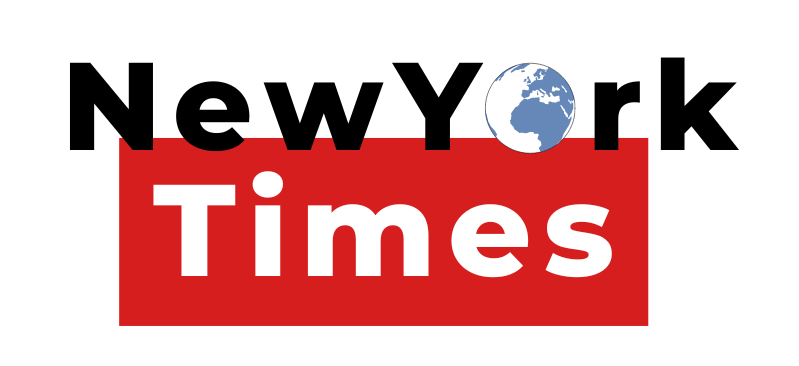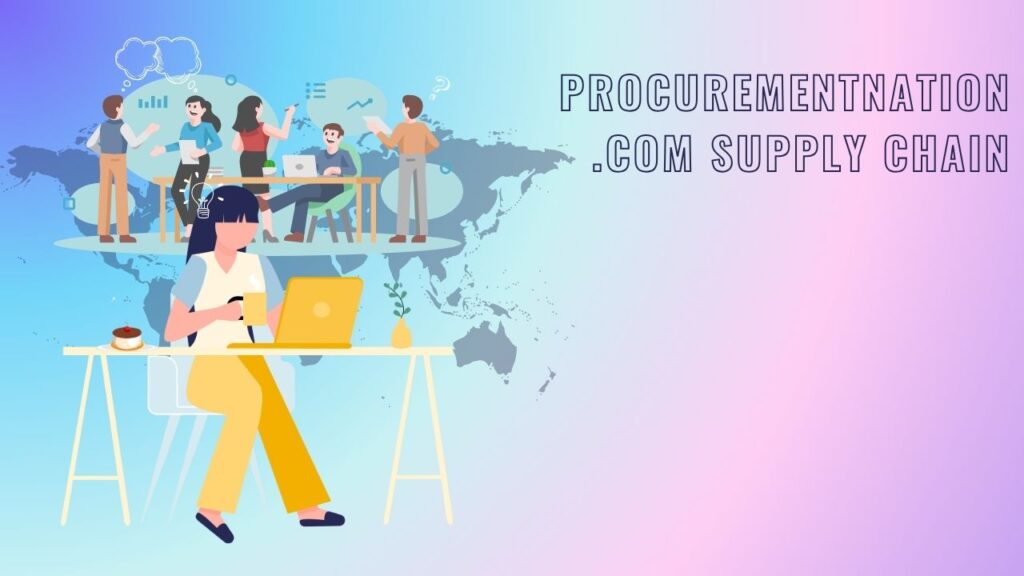Hi there! If you’ve ever wondered how businesses get the right products at the right time, you’re in the right place. Procurementnation.com supply chain is the process that helps businesses find suppliers, order goods, and get them delivered smoothly. A strong supply chain ensures businesses don’t run out of stock, keeping everything running without a hitch.
For example:
- A supermarket needs fresh fruits daily. It works with farmers and transport companies to make sure the fruits arrive fresh and on time.
- A clothing store orders new fashion trends from manufacturers. A smooth supply chain ensures clothes arrive before the peak selling season.
Here’s a table with relevant facts and figures related to procurementnation.com supply chain:
| Category | Fact/Figure | Source/Example |
|---|---|---|
| Global Supply Chain Market Size | $15.85 trillion (2023) | Statista |
| Impact of Supply Chain Disruptions | 57% of companies faced supply chain disruptions in 2022 | McKinsey Report |
| E-commerce Growth & Supply Chain | Online retail expected to reach $7.4 trillion by 2025 | eMarketer |
| Delivery Speed Expectation | 41% of customers expect same-day delivery | PwC |
| Cost of Poor Supply Chain Management | Inefficient supply chains cost businesses 9-20% of their revenue | Deloitte |
| Technology Adoption in Supply Chain | 72% of companies use AI for supply chain management | Gartner |
| Inventory Optimization | Companies with optimized supply chains reduce costs by 15% | Accenture |
| Sustainability in Supply Chain | 80% of CO₂ emissions come from supply chain activities | World Economic Forum |
| Warehouse Automation Growth | Expected to reach $51 billion by 2027 | Markets and Markets Research |
| Impact of AI on Supply Chains | AI can reduce forecasting errors by 30-50% | Boston Consulting Group |
How does procurementnation.com supply chain work?
The procurementnation.com supply chain works through different steps. Think of it as a well-organized process that ensures goods move smoothly from suppliers to customers. Here’s how businesses manage it:
- Planning: Businesses decide how much stock they need and when they need it.
- Sourcing: They find suppliers who can provide quality products.
- Purchasing: Orders are placed, and prices are agreed upon.
- Transportation: Products are shipped from suppliers to warehouses or stores.
- Storage: Goods are kept in warehouses until needed.
- Delivery: Products reach stores or customers in time.
For instance, a restaurant orders fresh vegetables daily. The supply chain ensures they arrive fresh, so customers can enjoy delicious meals without delay. If something goes wrong—like a late delivery—the restaurant might struggle to serve its customers properly.
Why is procurementnation.com supply chain important?
Procurementnation.com supply chain is the backbone of a successful business. Without it, stores would have empty shelves, factories would stop working, and customers would be left waiting. A strong supply chain helps businesses in several ways:
- Saves money: A well-managed supply chain reduces waste and extra costs.
- Saves time: Fast deliveries mean businesses can serve customers without delay.
- Avoids stock problems: Ensures businesses have the right amount of stock when needed.
- Keeps customers happy: Customers receive their products on time, making them more likely to return.
Imagine ordering a pair of shoes online and receiving them the next day—that’s the power of a good supply chain. If the company had delays, you might consider buying elsewhere next time.
What are the main challenges in procurementnation.com supply chain?
Managing a supply chain isn’t always easy. Businesses face several challenges that can slow down operations. Some common issues include:
- Supplier issues: If a supplier runs out of stock, businesses can’t get the products they need.
- Transport delays: Bad weather, traffic, or broken vehicles can cause delivery problems.
- High costs: Rising fuel prices and supplier costs can increase expenses.
- Inventory problems: Ordering too much or too little stock can create issues.
- Technology issues: If software fails, businesses may struggle to track their orders.
For example, imagine a store ordering too much fresh bread. If it doesn’t sell in time, the bread goes to waste. On the other hand, if they don’t order enough, customers may leave empty-handed.
How can businesses improve procurementnation.com supply chain?
Businesses can take smart steps to improve their supply chain. Here’s how they can make it better:
- Choose reliable suppliers: Working with trusted suppliers reduces risks.
- Use technology: Software helps track inventory and deliveries in real-time.
- Plan ahead: Businesses should order products before running out.
- Monitor transport: Tracking shipments helps avoid unexpected delays.
- Train employees: Staff should know how to handle supply chain tasks efficiently.
For instance, companies using tracking software can see exactly where their shipments are at any moment. This allows them to plan better and avoid surprises.
What role does technology play in procurementnation.com supply chain?
Technology makes the supply chain smarter and more efficient. Many businesses rely on technology to manage their supply chains. Some benefits of technology include:
- Faster processes: Businesses can order and track products quickly.
- Better accuracy: Reduces mistakes caused by human error.
- Cost savings: Automation lowers the need for extra workers.
- Improved communication: Suppliers, warehouses, and stores can share information instantly.
For example, barcode scanners help businesses track inventory easily. GPS tracking helps companies know exactly where their shipments are, ensuring smooth operations.
How do businesses choose the right suppliers for procurementnation.com supply chain?
Choosing the right suppliers is key to keeping procurementnation.com supply chain strong. Businesses look for suppliers who meet these important factors:
- Quality: Suppliers should provide high-quality products.
- Price: The cost should be fair and fit within the budget.
- Delivery time: Suppliers should deliver on time without fail.
- Reliability: Suppliers must be able to meet demand consistently.
- Customer service: Good communication helps solve problems quickly.
For instance, a bakery needs a supplier who delivers fresh flour on time. If the supplier fails, the bakery won’t be able to bake bread, leading to disappointed customers.
What are the future trends in procurementnation.com supply chain?
The procurementnation.com supply chain is evolving. Businesses are using new strategies to stay ahead. Some emerging trends include:
- Artificial Intelligence (AI): AI helps predict demand and prevent stock issues.
- Automation: Machines pack and move products faster, reducing human labor.
- Eco-friendly supply chains: More businesses are choosing suppliers with sustainable practices.
- Blockchain technology: This technology helps track products from suppliers to customers, ensuring transparency.
- Drones and robots: Some companies are experimenting with drones for quick deliveries.
For example, some grocery stores now use robots to check stock levels. This saves time and helps them restock faster, ensuring customers always find what they need.
How does procurementnation.com supply chain impact customer satisfaction?
A strong supply chain means happy customers. Businesses that manage their supply chain well can:
- Deliver products on time: No long waiting times for customers.
- Provide fresh and high-quality products: Customers get the best items available.
- Avoid stock shortages: Ensures that customers always find what they need.
- Handle returns easily: Makes the return process smooth and hassle-free.
For example, an online store that delivers orders quickly earns customer trust. A grocery store that always has fresh vegetables attracts more buyers. A strong supply chain creates positive customer experiences.
Conclusion
Procurementnation.com supply chain plays a key role in business success. It helps companies get products on time and keeps customers satisfied. By choosing the right suppliers, using technology, and planning well, businesses can build a strong supply chain. Future trends like AI and automation will make supply chains even better. A well-managed supply chain is the secret to happy customers and thriving businesses.
Here are some frequently asked questions (FAQs) related to procurementnation.com supply chain:
FAQs on procurementnation.com supply chain
1. What is procurementnation.com supply chain?
Procurementnation.com supply chain is the process of sourcing, purchasing, storing, and delivering goods efficiently. It helps businesses get the right products at the right time.
2. Why is procurementnation.com supply chain important for businesses?
A strong supply chain ensures timely deliveries, cost savings, and satisfied customers. It helps businesses avoid stock shortages and delays.
3. What are the key steps in procurementnation.com supply chain?
- Planning – Deciding how much stock is needed.
- Sourcing – Finding reliable suppliers.
- Purchasing – Placing orders.
- Transportation – Moving goods to warehouses or stores.
- Storage – Keeping stock until needed.
- Delivery – Getting products to customers.
4. What challenges does procurementnation.com supply chain face?
- Supplier delays
- High costs
- Transport disruptions
- Inventory mismanagement
- Technology failures
5. How can businesses improve their procurementnation.com supply chain?
- Use technology for tracking and automation
- Work with trusted suppliers
- Optimize inventory management
- Plan for demand changes
- Train employees for efficiency
6. How does technology help procurementnation.com supply chain?
AI, automation, and blockchain improve efficiency by reducing errors, tracking shipments, and ensuring transparency.
7. What are the future trends in procurementnation.com supply chain?
- AI-powered forecasting
- Drone and robotic deliveries
- Sustainable supply chains
- Blockchain for secure tracking
8. How does procurementnation.com supply chain impact customer satisfaction?
A smooth supply chain ensures customers get their products on time, reducing delays and improving trust in businesses.



